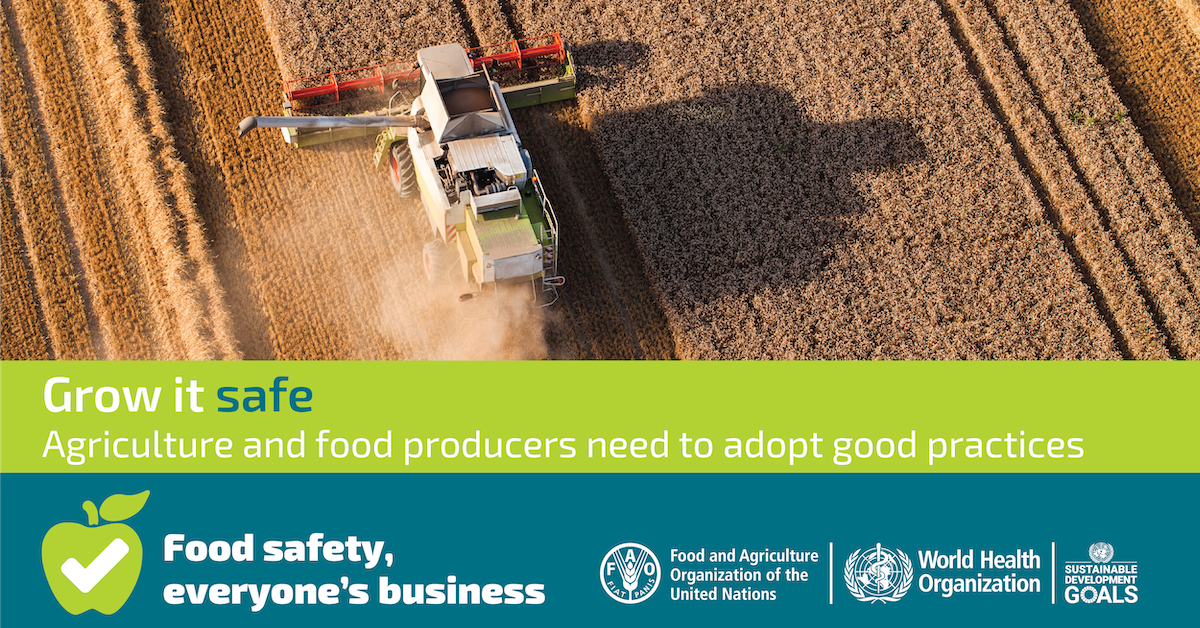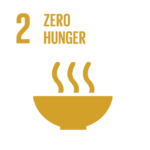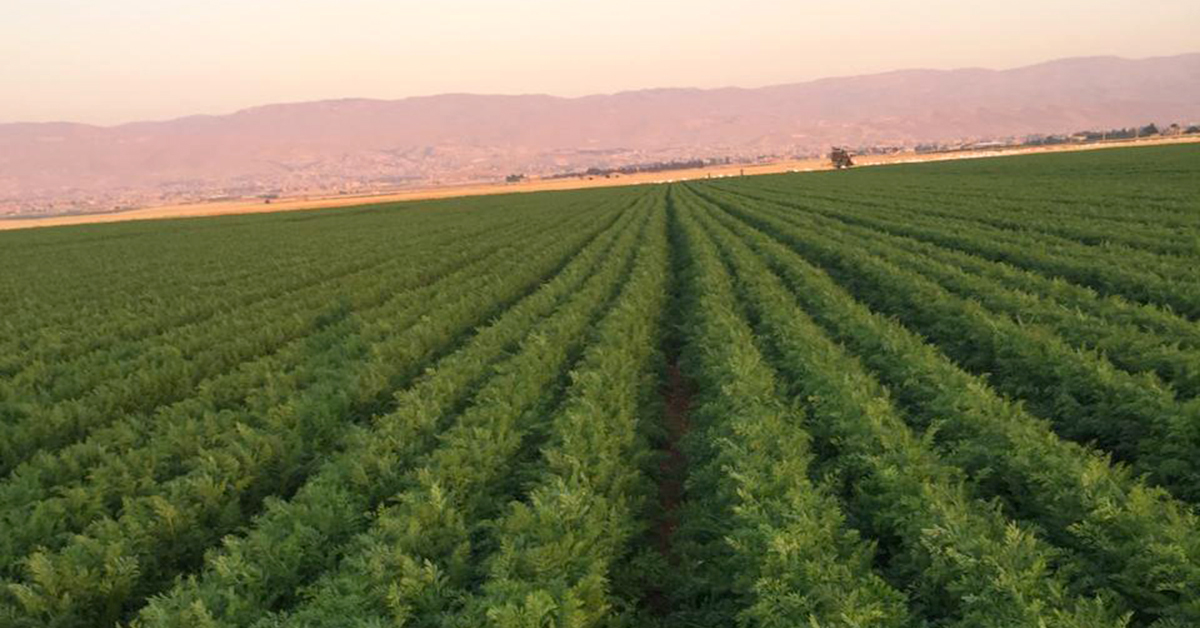
UN Sustainable Development Goal 2 – End Hunger
 UN Sustainable Development Goal 2 is about ending hunger, achieving food security and improved nutrition, and promoting sustainable agriculture. Hunger is on the rise again globally and undernutrition continues to affect millions of children. Public investment in agriculture globally is declining, small-scale food producers and family farmers require much greater support and increased investment in infrastructure and technology for sustainable agriculture is urgently needed.[1]
UN Sustainable Development Goal 2 is about ending hunger, achieving food security and improved nutrition, and promoting sustainable agriculture. Hunger is on the rise again globally and undernutrition continues to affect millions of children. Public investment in agriculture globally is declining, small-scale food producers and family farmers require much greater support and increased investment in infrastructure and technology for sustainable agriculture is urgently needed.[1]
Access to sufficient amounts of safe and nutritious food is key to sustaining life, promoting good health and respecting international laws. Sadly today, according to the Food and Agriculture Organization of the United Nations (FAO), 1 in 10 people around the world still fall ill after eating contaminated food.
Actually, numerous sources have highlighted the fact that one of the main reasons for increased prevalence of certain illnesses in different countries has been the consumption of fresh agricultural products. The contamination is the result of a lack of food safety in the production, supply and marketing of agricultural products.
World Food Safety Day
The second World Food Safety Day (WFSD) is celebrated on June 7, 2020 to draw attention and inspire action to help prevent, detect and manage food-borne risks, contributing to food security, human health, economic prosperity, agriculture, market access, tourism and sustainable development.
Under the theme “Food safety, everyone’s business”, the action–oriented campaign promotes global food safety awareness and calls upon countries and decision makers, the private sector, civil society, UN organizations and the general public to take action.
Food safety is a shared responsibility between governments, producers and consumers. Everybody has a role to play from farm to table to ensure the food we consume is safe and will not cause damages to our health. Through the World Food Safety Day, WHO pursues its efforts to mainstream food safety in the public agenda and reduce the burden of foodborne diseases globally.[2]
For the occasion, Nadine Khoury – COO of Robinson Agri and President of the QOOT Agri-Food Innovation Cluster in Lebanon, writes a blog for Berytech on the best practices they have been implementing to help observe the principles of food safety throughout the chain of agricultural production in Lebanon.
What is food safety
Food safety means ensuring that the food people consume is completely safe and free of any kind of contamination, whether microbial, parasitic or chemical.
Food safety is important as it helps to protect consumers from the risk of food-borne illnesses. It also helps to prevent consumers from risks of health-related conditions such as allergy and even death.
The World Health Organization estimates that more than 600 million people fall ill and 420 000 die every year from eating food contaminated with bacteria, viruses, parasites, toxins or chemicals. As for the economic price tag, according to the World Bank, unsafe food costs low-and middle-income economies alone about US$ 95 billion in lost productivity annually. Unsafe food also limits trade.
How to observe the principles of food safety throughout the chain of agricultural production
As food value chains become longer and more complex, food quality and safety are becoming an increasingly important issue for consumers as well as for governments. In fact, with growing urbanization, intensification of agriculture and the development of agroindustry and supermarkets, the distance between consumers and producers has considerably increased. Thus, the necessity of developing and implementing high food quality norms to ensure food safety and other aspects like food production process, geographical origin or the impact of production processes on the environment.
The role of agricultural companies like Robinson Agri

In different studies, many agricultural products have been found to be the source and origin of different disease outbreaks, being contaminated with chemical and biological agents, leading to major health problems for people.
The uncontrolled and illegal use of pesticides and growth hormones in the production of agricultural products, as well as the use of chemical preservative materials in the warehousing stages, increases the risk of agricultural food contamination.
As an essential player in the agribusiness value chain, Robinson Agri seeks to develop the notion of “an ounce of prevention is worth a pound of cure” in practice. Their mission is helping growers and producers monitor the activities related to agricultural areas, including the preparation and consumption of agricultural inputs, harvest, post-harvest, and processing and marketing of agricultural products.
Of course, their focus is mainly on Farmers. Their approved measures include monitoring inputs, introducing new techniques, and encouraging product traceability.
Monitoring Inputs
Water: one of the main reasons for producing these unhealthy crops is the use of water contaminated by sewage and other pollutants. This is why Robison Agri always encourages growers to test their water and based on the obtained results, use adequate treatment to obtain clean water (special filtering system to remove chemical and organic contamination). Water testing will help also prescribe the optimum recipe of fertilizers and bio-stimulants to meet the precise plant requirements. In this way, the uncontrolled application of fertilizers is reduced thus preventing environment pollution and water contamination.
Crop protection agent and fertilizers: Since there are limits to the amount of agricultural land available, the yield per square meter must be improved. Robinson Agri’s intervention is encouraging most growers to adopt new concepts in agriculture, which leads to plant empowerment, an integrated approach to sustainably growing crops in greenhouses by supporting the plant’s balances. Through this method, they stimulate and support the natural growing power of the plants by creating optimal growth conditions, both above soil and in the root zone. Plants will use the resources (energy and nutrients) in this case more efficiently, which minimizes long-term damage to the soil, and reduces the use of crop protection agents and fertilizers.
Hybrid crops: Robinson Agri regularly introduces varieties with improved benefits, or ‘traits’, for the entire fresh produce chain. Their varieties are bred for best quality produce, are drought tolerant, and resistant to a wide range of diseases. By using these top-quality hybrid seeds, growers are able to reduce pesticides application and consequently produce better, cleaner and healthier vegetables.
Introducing new techniques
Grafting vegetables: Robinson Agri introduced the grafting technique to the Lebanese market thanks to their joint venture with Plantise – a leader in grafting vegetables. With this technique, they have provided for the last twenty years Lebanese growers with a wide range of grafted plants including watermelons, melons, eggplants, peppers, tomatoes, and cucumbers. These grafted plants are more vigorous, produce larger plants and have much higher yields (30 % increase). These plants can fight pests and diseases better than non-grafted plants; they have greater resistance to soil-borne diseases, negating the need for the harmful application of nematicides and pesticides.
Hydroponics – nutrient film technique: This production model is highly beneficial to the farmers, retailers, consumers and of course the environment. In this system, the plants are not in direct contact with the soil, which decreases the post-harvest and disinfection cost. Additionally, the risk of contamination from harmful bacteria like salmonella and E-coli is also reduced. In such systems, growers can decrease the use of agrochemicals and produce safer food. In fact, hydroponic is a valid alley in reducing the impact of contamination and meeting the international safety standards in the vegetable production.
Encouraging products traceability: by advising and training growers to adopt important post-harvest practices like grading, storing, packing and branding, Robinson Agri helps them highlight the added value of the crops and consequently improve the return for growers.
Food safety is a shared responsibility from production to consumption
Food safety is everyone’s responsibility and therefore everyone’s business. Today, food is processed in greater volumes and distributed over greater distances than ever before. Widespread collaboration and contributions of all actors in the food supply chain, as well as good governance and regulations, are essential to food safety.
An additional important commitment is boosting collaboration and cooperation between various players in the value chain by creating links between private companies from different industries and between private and public sectors.
Finally, whether you are a farmer, farm supplier, food processor, transporter, marketer or consumer, food safety is everyone’s business.
About the author
 After graduating in 1995 with a B.S. in Agriculture Engineering from the American University of Beirut, Nadine Khoury went to the Kingdom of the Netherlands for a six months training before launching her roses and colored pepper project.
After graduating in 1995 with a B.S. in Agriculture Engineering from the American University of Beirut, Nadine Khoury went to the Kingdom of the Netherlands for a six months training before launching her roses and colored pepper project.
Equipped with important operational experience, she started working at Robinson Agri, the company founded by her father Sami El Khoury. Armed with a solid belief in the potential of Lebanese Agriculture with the help of a highly specialized team, Nadine ascended to the role of COO, directly contributing to the expansion of the Greenhouse & Seed businesses of Robinson Agri, and the establishment of Agrigrow – the professional plant nursery founded in partnership with Dutch company Grow Group, an international front runner and specialist in grafting vegetable plants.
Her focus on innovation pushed Robinson Agri to the forefront of advancing agriculture in Lebanon. Not stopping at agriculture, Nadine worked on the establishment of Elysee WISE in a joint venture with Elysee – Cyprus, a factory for irrigation and potable water PE pipes and is actively heading its Business Development Unit.
Over the course of her career, Nadine has served as a member of different professional associations like LDBA, the Association of Lebanese Industrialists and Byblos Industrialists Assembly, and recently as a board member in WLC and in Berytech’s Agrytech Program, also as the President of QOOT Agri-Food Innovation Cluster.
[1] https://sustainabledevelopment.un.org/sdg2v
[2] https://www.who.int/news-room/campaigns/world-food-safety-day/2020







